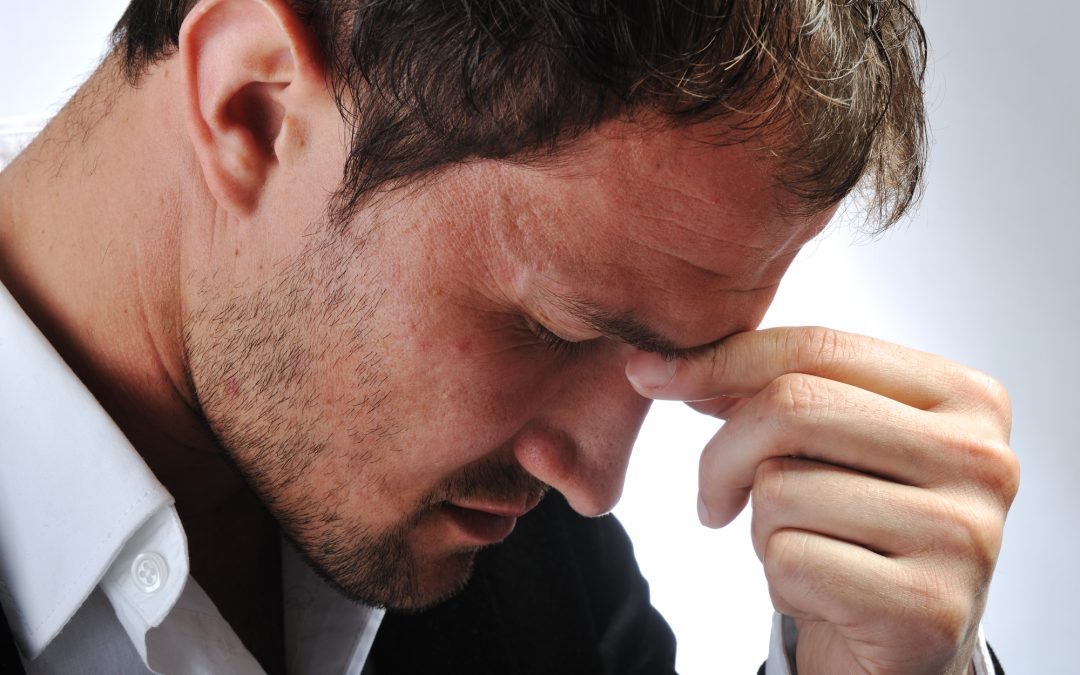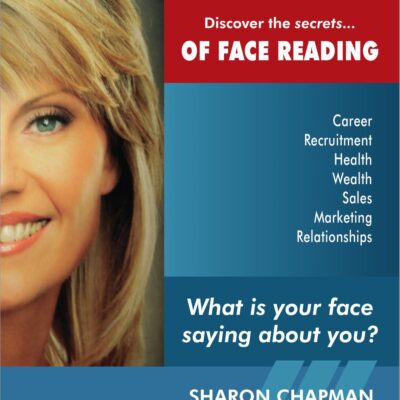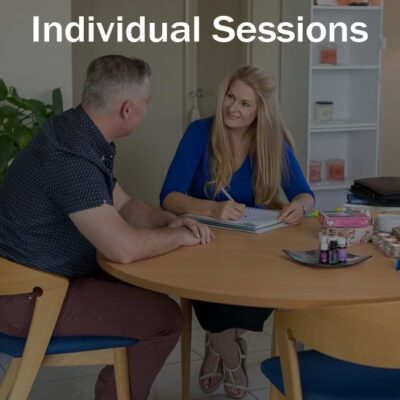Why do I have Anxiety?
Every person I’ve met shares with me they have experienced anxiety to some degree – at some time – (or still do) on a daily basis. Minor anxiety is a fleeting feeling of concern (such as will I get to my destination on time in this heavy traffic?). Anxiety is when these anxious feelings don’t go away – when they’re ongoing and happen without any particular reason or cause. This can be confusing and cause havoc in a relationship with a partner, family friend or anyone you do business with.
An interesting fact:
Anxiety is the most common mental health condition in Australia. On average, one in four people – one in three women and one in five men – will experience anxiety at some stage in their life. In a 12-month period, over two million Australians experience anxiety.https://www.beyondblue.org.au/the-facts/anxiety
Have you ever experienced an anxiety attack?
I clearly remember the first time I had an anxiety attack. Aged 5 years old and being forced onto a school bus without my siblings or parents this was a bit too much for a shy and hesitant little girl. My hands started trembling, there was a tight feeling in the pit of my stomach, it was hard to breathe, and it felt like all my senses were heightened – voices around me seemed louder and bombarded my little body. My Dad had to come from work to get me and take me home because I was hysterical! Unless you have experienced anxiety (or an anxiety attack), it would be difficult to imagine how scary and isolating it can feel in that very moment.
Fortunately, I live a life now with very little anxiety. I know what triggers it, how to acknowledge it, and most importantly, how to move through it with ease in a matter of minutes with the modalities I recommend. Although this took years of study and practice, I love sharing this information with clients so they can also be free of the debilitating anxious feelings and return to peace and calm from within. Oh how I love my work! Better still, I hear about the positive results and see people transform right before my eyes from anxious back to calm, centred and confident.
How does anxiety affect me physically?
Anxiety is more than just a feeling. Because of these physical symptoms, anxiety sufferers often mistake their disorder for a medical illness. They may visit many doctors and make numerous trips to the hospital before their anxiety disorder is finally recognized. As a product of the body’s fight-or-flight response, anxiety also involves a wide range of physical symptoms, here are some common ones:
• A feeling of dread or panic in the pit of your stomach
• Digestive issues, abdominal pain and IBS
• Dizziness or like you are about to pass out
• Feeling ‘on-edge’, detached or unreal
• Frequent urination or diarrhea
• Headaches
• Hot or cold temperature changes in body
• Inability to concentrate or focus
• Insomnia
• Irritability
• Nausea or stomach cramps
• Mind racing or going blank
• Muscle tension or twitches
• Pounding heart or chest pain
• Racing heart
• Rapid or restricted breathing
• Shaking or trembling
• Shortness of breath
• Sweating
• Wanting to run from a person or situation
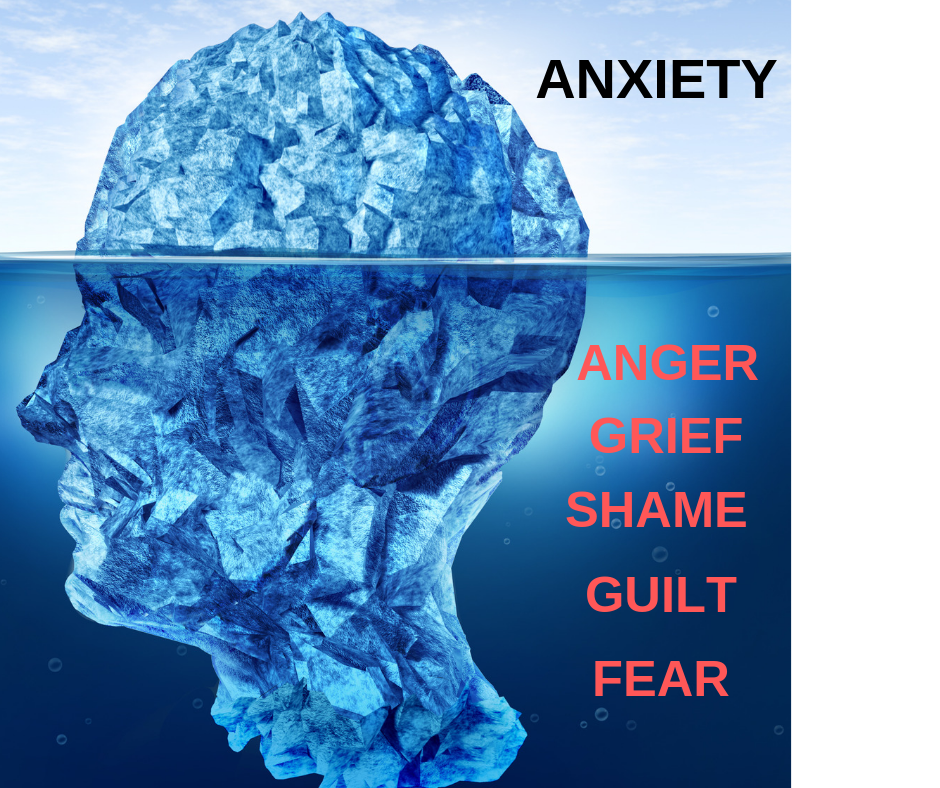
Sometimes we try to mask these physical symptoms. As one client put it….
“Just because I look ok on the outside, doesn’t mean I’m not fretting on the inside”
Where does anxiety come from?
An anxiety condition isn’t developed or caused by a single factor but a combination of things. Several other factors play a role, including:
- A genetic predisposition or family history – often there is a parent or caregiver who is anxious or has negative thought patterns and we learn and copy those behavioural traits from them. However, having a parent or close relative experience anxiety or other mental health condition doesn’t mean you’ll automatically develop anxiety.
- People with certain temperaments are more prone to anxiety disorders. People who are easily aroused and upset, and are very sensitive and emotional, are more likely to develop anxiety disorders. People who as children were inhibited and shy may be prone to develop certain anxiety disorders, such as social phobia more easily
- Personality factors – For example, children who are perfectionists, easily flustered, timid, inhibited, lack self-esteem or want to control everything, sometimes develop anxiety during childhood, adolescence or as adults
- Ongoing stressful events (or a succession of events in a close period of time) – Work or job stress, job change, moving home, pregnancy and giving birth, family and relationship problems, major emotional shock following a stressful or traumatic event, verbal, sexual, physical or emotional abuse or trauma, death or loss of a loved one.
- Ongoing Chronic physical illness or the impact of the treatment itself
- Substance use – The use of alcohol or other drugs are sometimes used to help manage anxiety, yet this may lead to people developing a substance use problem along with their anxiety condition which only aggravates the situation.
- Technology use can also play a role. Becoming addicted to devices without taking regular breaks can impact anxiety levels. The World Health Organisation has officially recognised addiction to online gaming (also known as Gaming Disorder) as a health condition. Also, comparing our lives to those presented on social media can also be a source of anxiety as is the Fear of Missing Out (or FOMO). This occurs when seeing others’ on social media (usually friends and loved ones) having fun and we have not been included. Finally, being a victim of online bullying and abuse can have a detrimental impact on anxiety.
What kinds of anxiety are there?
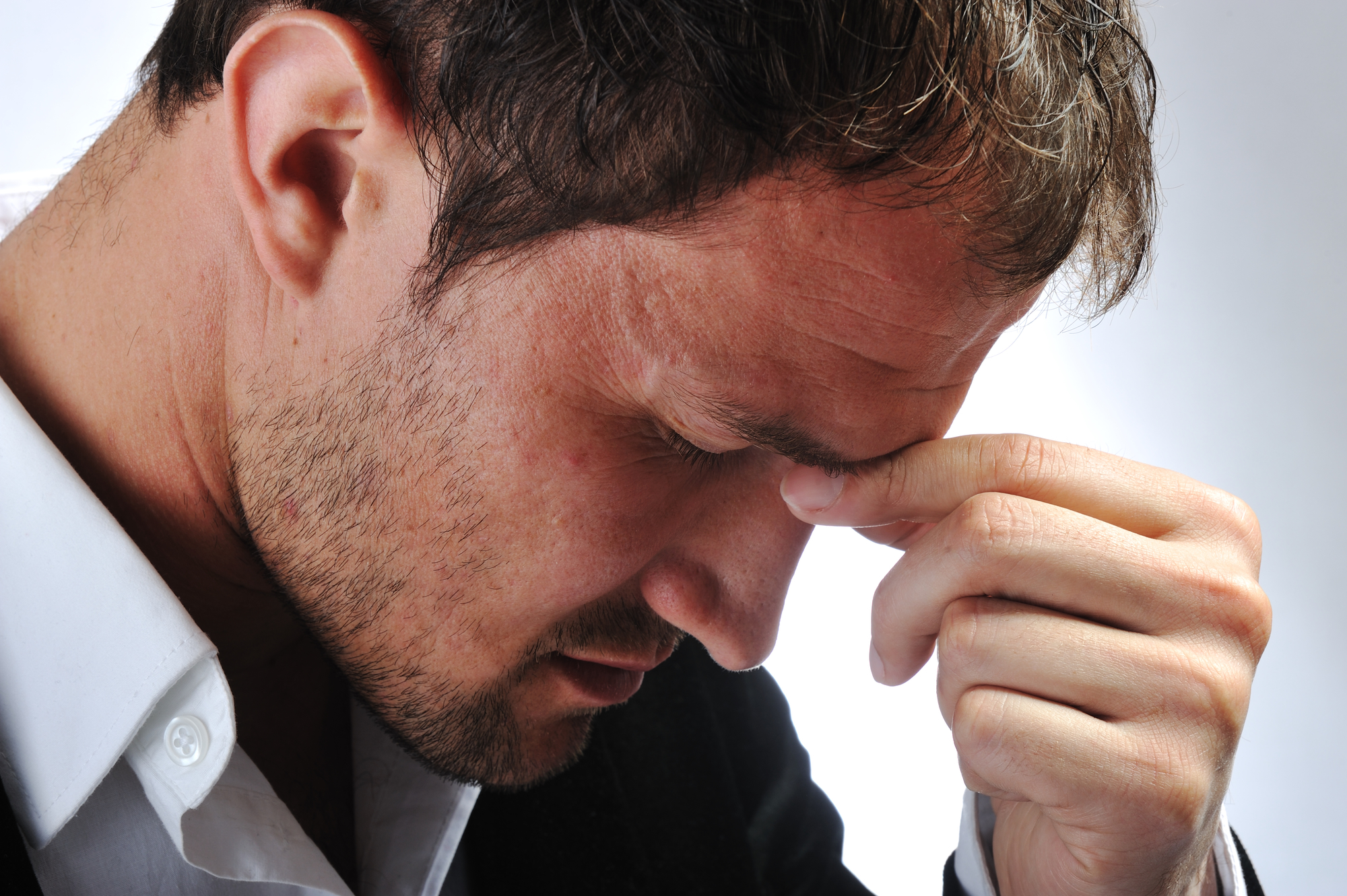
Young man in pose
- Generalised anxiety disorder: Excessive worry about anything and everything, including worrying about worrying. A person feels anxious on most days, worrying about lots of different things, for a period of six months or more
- Social anxiety disorder: Anxiety in social situations, often rooted in the fear of doing something wrong and being judged by others. It comes with an intense fear of being criticised, embarrassed, humiliated or rejected, even in everyday situations, such as speaking publicly, eating in public, being assertive at work or making small talk. It is common in stage fright and fear of intimacy in relationships
- After-event anxiety: Worrying you may have said or done the wrong thing, dislike of a photo or image displayed of yourself you don’t like (such as on social media)
- Separation anxiety disorder:High levels of anxiety after separation from a person or place that provides feelings of security or safety characterize separation anxiety disorder. Separation might sometimes result in panic symptoms. Small children and animals often experience this
- Specific phobias: Intense fear of objects or situations (e.g. large dogs or flying) and may go to great lengths to avoid it
- OCD: Carrying out certain behaviours or rituals. For example, a fear of germs and contamination can lead to constant washing of hands and clothes
- Post traumatic stress disorder (PTSD). This can happen after a person experiences a traumatic event (e.g. war, assault, accident, disaster). You may experience difficulty relaxing due to reliving the incident and have upsetting dreams or flashbacks of the event and avoidance of anything related to the event. PTSD is diagnosed when a person has symptoms for at least a month and you feel sad, hopeless, unmotivated, or disinterested in life in general.
- Panic disorder:Repeated panic attacks and worry about future panic attacks. They are sudden, intense, overwhelming and often uncontrollable feelings of anxiety combined with a range of physical symptoms. Sometimes, people experiencing a panic attack think they are having a heart attack or are about to die. If a person has recurrent panic attacks or persistently fears having one for more than a month, they’re said to have ‘panic disorder’.
- Agoraphobia: Anxiety about having a panic attack in certain situations and not being able to escape or to get help.
How can I help you resolve your anxiety?

Client Testimonial: “80% of my daily anxiety was reduced in 3 sessions with Sharon”, Darren.
I have worked with clients experiencing different levels of anxiety and have had great success in resolving their emotional issues at the root cause. This is what I explain to my clients:
You may not have anxiety.
You may have unresolved emotional trauma from your past.
A common name for that is PTSD.
You may have OCD to cope, this is very common (and great if you are a bit obsessive about having a clean car or home – bonus!)
It is likely you have absorbed negative emotions from people around you if you are sensitive (and you may have held on to these for many years).
This is what I specialise in helping you resolve (I have with hundreds of clients, so rest assured you are in safe and experienced hands).
A big sigh of Relief. Sometimes tears of gratitude and in my client Jessica’s words yesterday – “I feel happy I’m not as screwed up as I thought I must be!”.
By combining different modalities specifically designed to understand and resolve the bigger issues that have been affecting you for some time and causing you to feel anger, grief, shame, guilt and fear on a regular basis.
Anti-anxiety medications that specifically influence the neurotransmitter system in the brain are sometimes useful. Medication will not cure anxiety disorders but can keep symptoms under control while a person receives psychological treatment.
5 Strategies to help with your anxiety
Answer these 7 questions to see if you have anxiety:
- Are you constantly tense, worried, or on edge?
- Does your anxiety interfere with your work, school, or family responsibilities?
- Are you plagued by fears that you know are irrational, but can’t shake?
- Do you believe that something bad will happen if certain things aren’t done a certain way?
- Do you avoid everyday situations or activities because they cause you anxiety and stress?
- Do you experience sudden, unexpected attacks of heart-pounding panic?
- Do you feel like danger and catastrophe are around every corner?
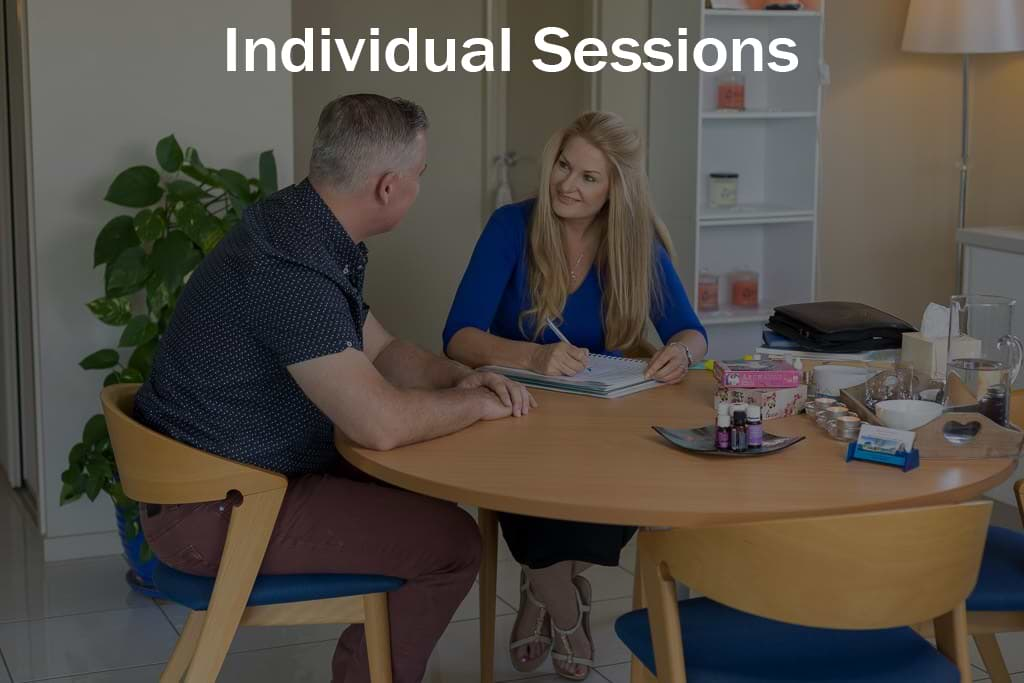
If you would like some help with your anxiety, you don’t have to battle it alone anymore.
I’m looking forward to speaking with you soon. Feel free to contact me via my website:

